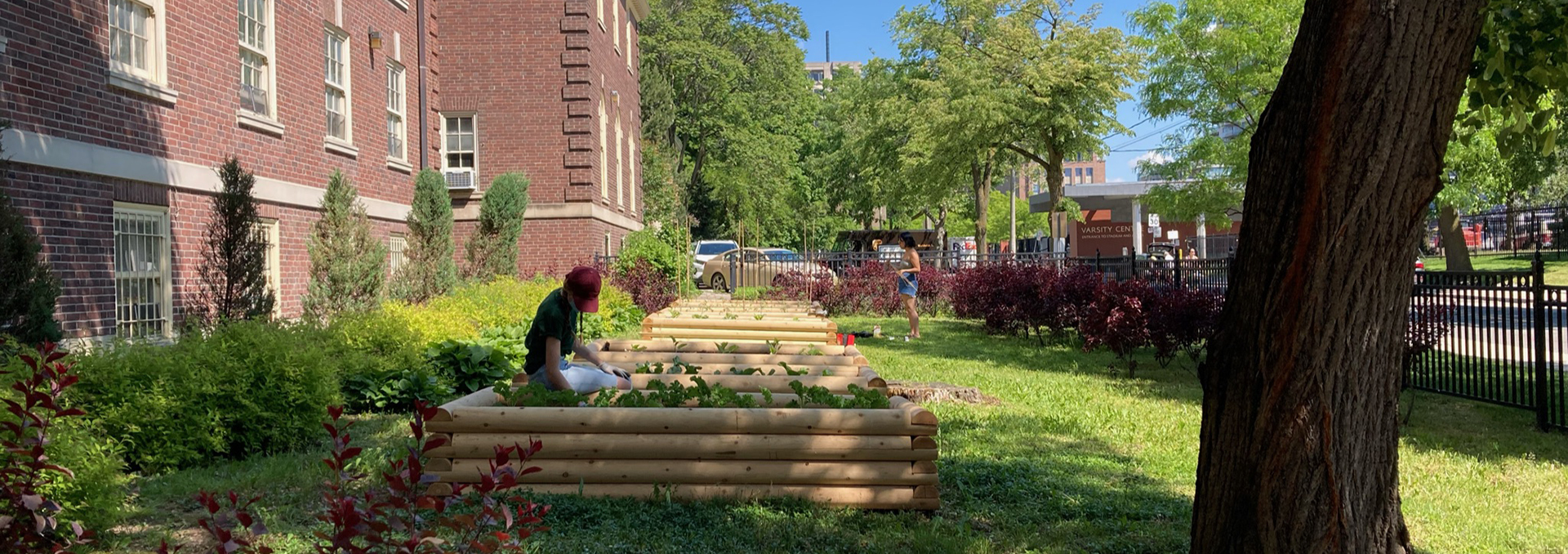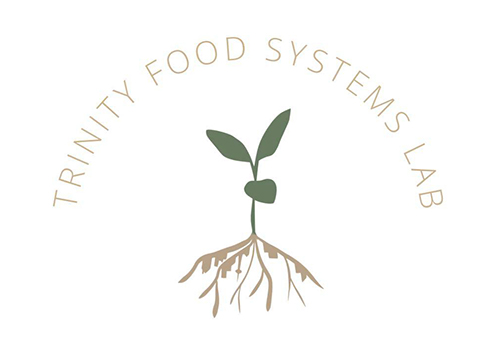


The Trinity Food Systems Lab is a research, action and learning hub in the Sustainability Initiative of Trinity College. Our collective work is aimed at transformational change to realize more socially just and ecologically sustainable food systems. We begin from the premise that the postsecondary campus is a site of innovation and incubation, enabled through action-focused research and experiential pedagogy, which can inform broad food systems transformation.
Learn more about the Food Systems Lab, current research projects and team members!
Food systems are the web of interactions involved with what and how we eat – this includes complex social and ecological relations of producing and distributing food, as well as food waste. These relations are influenced by environmental regulations, labour laws, cultural practices and more. Food systems have no definitive limits and reflect the complex interactions found within and between the humans and more-than-human worlds. Because food systems are such a broad concept, sustainability requires many perspectives and a multidisciplinary approach.
Everyone eats. Food brings us together and is an integral part of how we interact with the natural world. Our dominant industrial food system is inequitable and a major contributor to environmental and health issues such as climate change, biodiversity loss and pollution. Food systems are an incredible opportunity for everyone to contribute to a sustainable future.
Sustainable food systems reintegrate agriculture with functional natural ecosystems and healthy, equitable social relations. All food systems will have an impact, but we can minimize negative impacts by reducing the use of fertilizers, consuming foods with smaller carbon footprints, or supporting local providers. Moreover, we can have a positive impact on the Earth and our communities through regenerative sustainability. This might include food production practices that foster local food sovereignty, support food security for all communities, improve soil and ecology integrity, create GHG sinks, and strengthen our relationships with nature and each other.
Food is a central component of our wellbeing, cultures and identities. Sustainable food systems are those where everyone has access to good quality and culturally appropriate food that is produced through independent growers, markets and small businesses that provide safe working conditions and living wages.
Prior to summer 2022, Trinity Food Systems Lab was known as the Trinity Sustainable Food Systems Research Group (SFSRG).